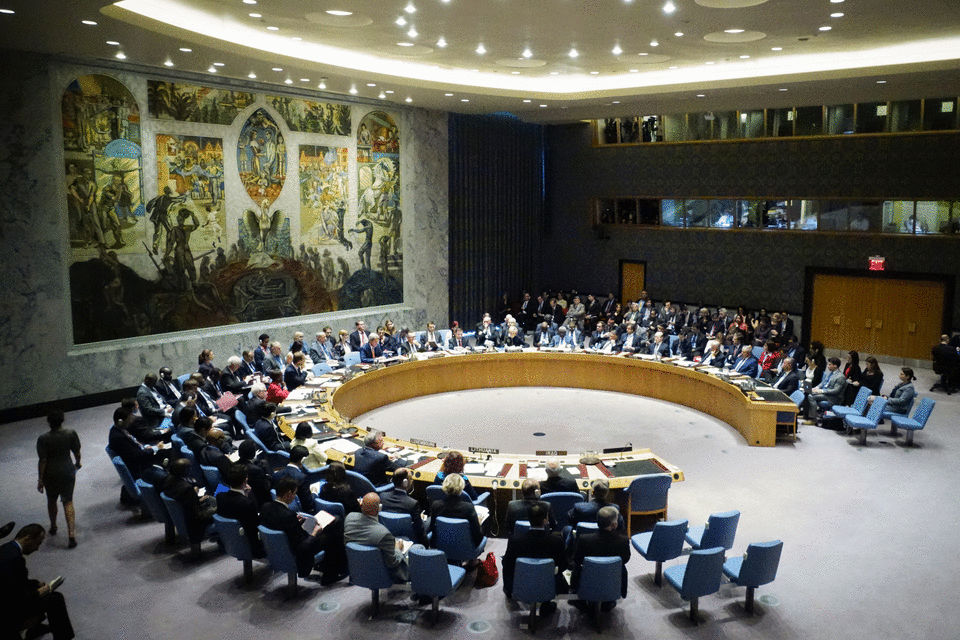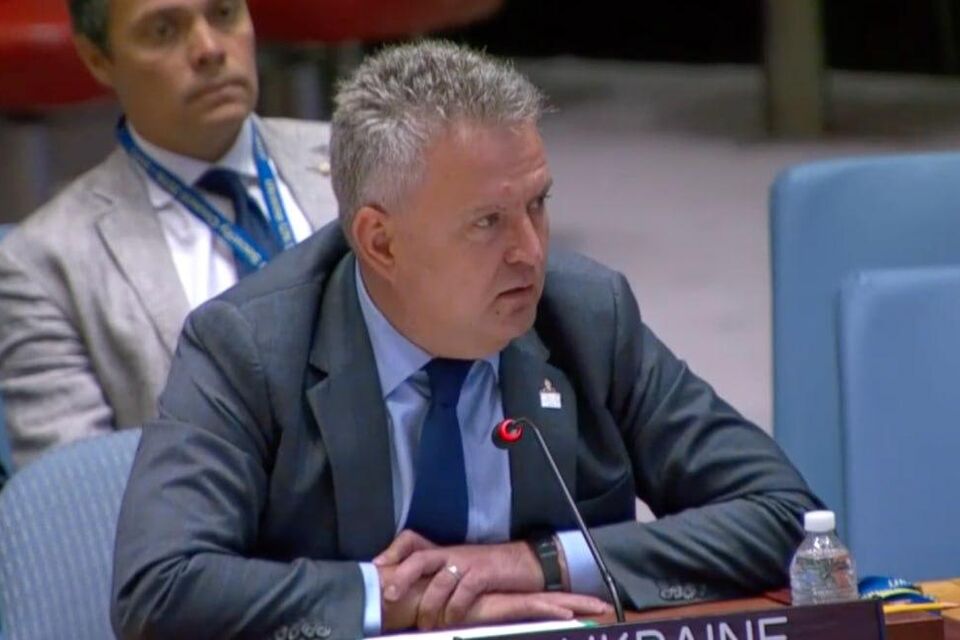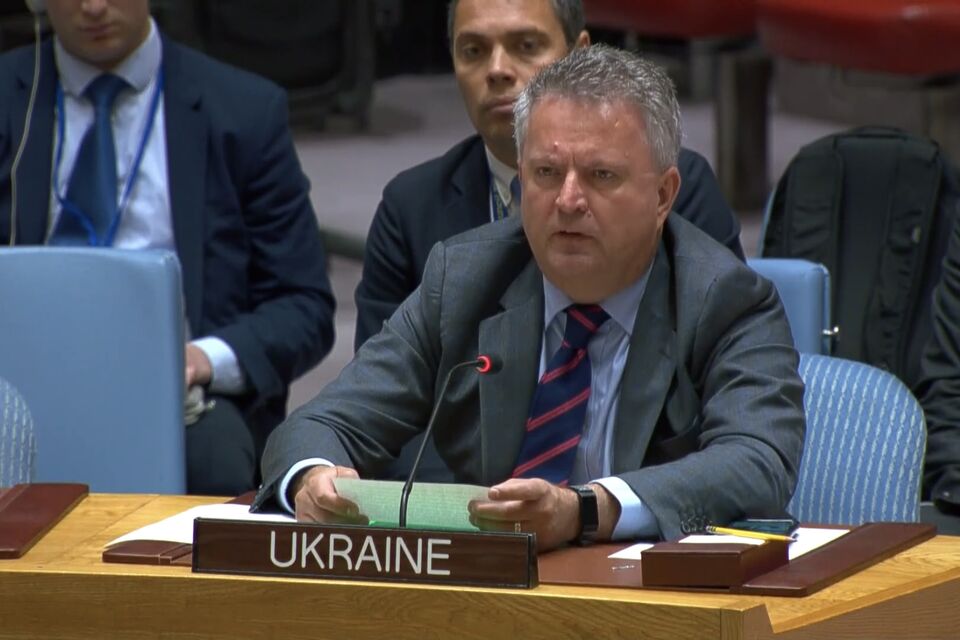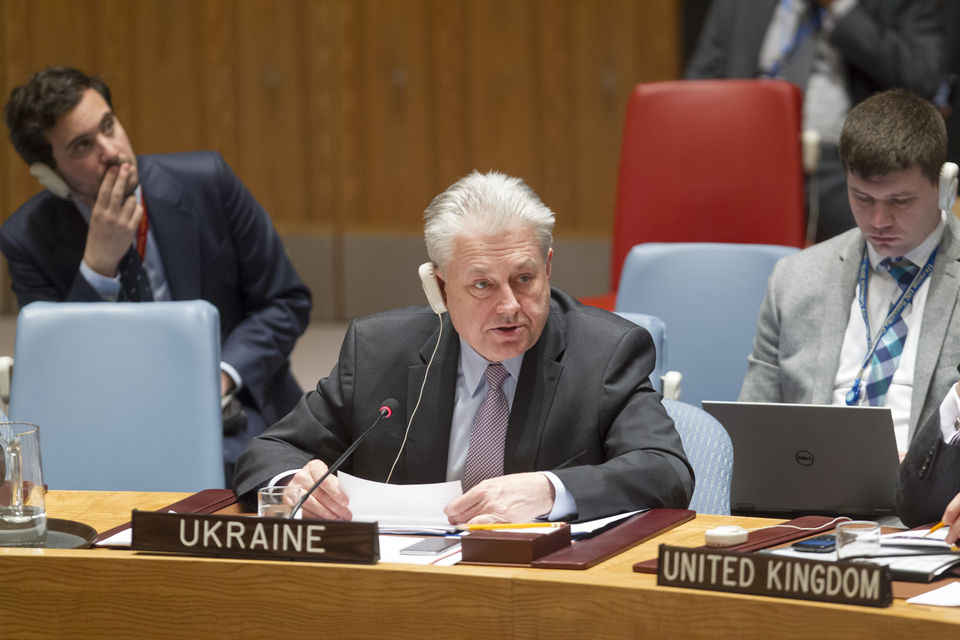Joint Statement by Ukraine, Egypt and Spain at the UN Security Council Open Debate on “Post-conflict Peacebuilding: Review of the Peacebuilding Architecture”

Joint Statement by Ukraine, Egypt and Spain at the UN Security Council Open Debate on “Post-conflict Peacebuilding: Review of the Peacebuilding Architecture”
23rd February 2016
Mr. President,
The ongoing review of the UN Peacebuilding Architecture takes place at a defining moment for the Organization. With rising number of violent conflicts and with the changing nature of these conflicts, the existing tools and approaches that the United Nations use and take to respond are called into question. Together with the review of peacekeeping operations and the review of the implementation of Security Council Resolution 1325 on Women, Peace and Security, the review of the peacebuilding architecture points to serious gaps resulting from duplication and fragmentation within the wider UN system.
It is in this context that we commend you, Mr. President, for organizing this debate at a critical juncture in the intergovernmental process of the peacebuilding review. Hence, the need for Member States and the UN leadership to consider measures leading to effecting real change in the prevailing mindset within, as well as to strengthen the capacity of, the broader UN peacebuilding architecture.
We hope that this debate would contribute to accelerating the arrival to consensus, through the intergovernmental process, on such measures.
We, therefore, wish to seize this opportunity to pledge our continued support for the role of the co-facilitators of the intergovernmental process, the Permanent Representatives of Angola and Australia.
Mr. President,
The report of the Advisory Group of Experts on the peacebuilding review, developed under the leadership of Ambassador Gert Rosenthal, presented us with in-depth analysis and practical recommendations based on case studies and perspectives drawn from a variety of experiences from the field.
Drawing upon these experiences, the report concluded that unless there is national will and ownership, and unless we succeed in breaking the silos within our governments, between the UN principal organs and between and within the UN Secretariat, Agencies, Funds and Programmes, we will fail the peoples that we are mandated to serve.
As the principal organ mandated to maintain international peace and security, it is in this Council's interest to consider, with urgency, measures to discourage siloed and fragmented approaches with a view to protecting the multi-billion dollar investment in peacekeeping against the risk lapse or relapse into conflict. In recent memory, the tragic cases of South Sudan and the Central African Republic serve as stark illustrations of such risk.
Mr. President,
Times of crisis and outbreaks of violence are often symptoms of existing tensions between and within countries. Therefore, we believe that prevention is a central component of sustainable and durable peace. Enabling countries to put in place effective and inclusive national and local mechanisms and institutions that can address the socio-economic and political root causes and drivers of violent conflict must become a priority for the UN system. These include issues related to the promotion and protection of human rights and of a prominent role for women in all stages of peace consolidation. We, thus, need to ensure that the three reviews before us would result in specific actions to establish a more coherent UN system oriented towards preventing conflict at the source.
Therefore, it is imperative to introduce policies, structures and mandates that that cater to capacity development of national stakeholders. To this end, we cannot emphasize enough the importance of partnerships with relevant regional and international actors. Several recommendations presented in the report of the Advisory Group of Experts are particularly relevant in this regard.
Preventive diplomacy also represents a major tool of prevention that the Security Council should deploy more, drawing upon the good offices of the Secretary-General and his mandated responsibility to draw the Council’s attention to situations that could threaten international peace and security, as well as upon partnership with regional and sub-regional organizations. To this end, we believe that the Council must re-commit to the spirit of chapters VI and VIII of the UN Charter. This will be a critical contribution by the Council to building and sustaining peace. In this vein, the Council should consistently respond to requests of parties for assistance in implementation of peace agreements. The most recent response to the request from Colombia and the FARC serves as a good example for future Council contribution to prevention of relapse into conflict.
Mr. President,
The World Summit of 2005 decided to introduce three new components to the broader UN peacebuilding architecture, the Peacebuilding Commission, the Peacebuilding Fund and the Peacebuilding Support Office. Despite their commendable contribution to sustaining our attention on situations and needs that would have otherwise fallen off the radar, we must plead guilty for underutilizing these tools over the past ten years. Very few of us and within the UN system showed the requisite commitment and belief.
This explains the inability of these structures to realize their full potential. This also explains why this Council continues to be challenged every time we wake up to the news of renewed fighting and tensions in places where the UN invested much resources and time.
We must seize the opportunity offered by the three reviews to ensure that the three components play a more central role in catalyzing political commitment from Member states, promoting coherence within and beyond the UN system, and mobilizing human and financial resources.
As an advisory body to the Security Council and the General Assembly, the Peacebuilding Commission can play a crucial convening role to bridge gaps and siloes between security, development and human rights engagements. With the reforms proposed by the peacebuilding review to the working methods and functions of the Commission, the Security Council should rather consider it a viable tool at its disposal when situations with which it is seized are no longer characterized as "crises", but still considered fragile and deserved of a more dedicated, targeted and sustained attention. OR when considering challenges in the implementation of peacebuilding-related mandates of peacekeeping and special political missions, or when considering the draw-down and termination of these missions.
Mr. President,
Building and consolidating peace must not be viewed as a set of activities undertaken simultaneously or in sequential order. It is rather a dynamic process, with opportunities emerging throughout the arc of the crisis. Therefore, peacebuilding-related investments should start early as the opportunities present themselves to build the foundations of inclusive political settlements or help build key institutions.
Currently, peacebuilding-related funding is often ad hoc. More predictable funding for a broad range of early and targeted engagement remains critical for building and sustaining peace. Investments in supporting political dialogue and strengthening of security and justice institutions, as well as civil administration are necessary both during and after violent conflict.
The report of the Advisory Group of Experts offered ambitious recommendations aimed at enhancing predictability of peacebuilding funding, as well as strengthening the effectiveness and potential of domestic revenue generation that help countries exercise greater ownership of its peacebuilding processes. We believe these recommendations deserve greater openness and serious consideration from Member States.
Mr. President,
We truly hope that we can soon reach consensus on a resolution that will formalize the review and authorize efforts to effect the needed changes. However, no resolution stands a chance of making a real difference unless all Member States and the top UN leadership stand ready to renew their commitment to saving this and succeeding generations from the scourge of war.
I will conclude with a quote from Boutrous Boutrous Ghali’s 1992 Agenda for Peace: “Reform is a continuing process, and improvement can have no limit. The pace set must be increased if the United Nations is to keep ahead of the acceleration of history that characterizes this age. We must be guided not by precedents alone, however wise these may be, but by the needs of the future and by the shape and content that we wish to give it."



